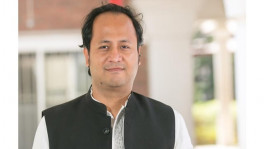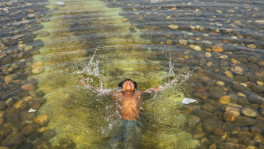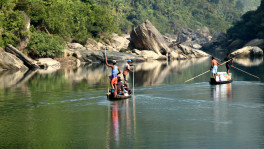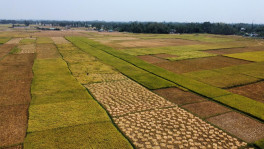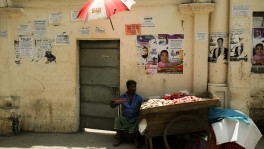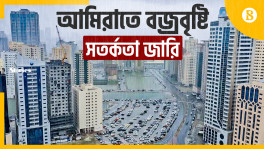UN chief warns of risks of artificial intelligence

UN Secretary-General Antonio Guterres on Tuesday (18 July) warned of the risks of artificial intelligence (AI) and called for a race to develop AI for good purposes.
AI is being put to work in connection with peace and security, including by the United Nations. It is increasingly being used to identify patterns of violence, monitor cease-fires and more, helping to strengthen peacekeeping, mediation and humanitarian efforts. But AI tools can also be used by those with malicious intent, he told the Security Council in its first-ever debate on AI.
"AI models can help people to harm themselves and each other, at a massive scale. Let's be clear: The malicious use of AI systems for terrorist, criminal or state purposes could cause horrific levels of death and destruction, widespread trauma, and deep psychological damage on an unimaginable scale," he warned.
AI-enabled cyberattacks are already targeting critical infrastructure and UN peacekeeping and humanitarian operations, causing great human suffering, he noted.
The technical and financial barriers to access are low, including for criminals and terrorists. Both military and non-military applications of AI could have very serious consequences for global peace and security, he said.
The advent of generative AI could be a defining moment for disinformation and hate speech, undermining truth, facts, and safety; adding a new dimension to the manipulation of human behaviour; and contributing to polarisation and instability on a vast scale. Deepfakes are just one new AI-enabled tool that, if unchecked, could have serious implications for peace and stability. And the unforeseen consequences of some AI-enabled systems could create security risks by accident, he warned.
Malfunctioning AI systems are another huge area of concern. And the interaction between AI and nuclear weapons, biotechnology, neurotechnology, and robotics is deeply alarming, he said.
"Generative AI has enormous potential for good and evil at scale. Its creators themselves have warned that much bigger, potentially catastrophic and existential risks lie ahead. Without action to address these risks, we are derelict in our responsibilities to present and future generations," he said.
Guterres urged the Security Council to exercise leadership on AI and show the way toward common measures for the transparency, accountability, and oversight of AI systems.
"We must work together for AI that bridges social, digital, and economic divides, not one that pushes us further apart. I urge you to join forces and build trust for peace and security," he told the Security Council members. "We need a race to develop AI for good, to develop AI that is reliable and safe and that can end poverty, banish hunger, cure cancer, and supercharge climate action; AI that propels us toward the Sustainable Development Goals. That is the race we need, and that is a race that is possible and achievable."
He urged the Security Council to approach AI "with a sense of urgency, a global lens, and a learner's mindset."
"What we have seen is just the beginning. Never again will technological innovation move as slow as it is moving today," he said.
The international community has a long history of responding to new technologies with the potential to disrupt societies and economies. While many countries have called for different measures and initiatives around the governance of AI, this requires a universal approach, he said.
But he cautioned that questions of governance will be complex as powerful AI models are already widely available to the general public; AI tools, unlike nuclear material and chemical and biological agents, can be moved around the world leaving very little trace; the private sector's leading role in AI has few parallels in other strategic technologies.
The best approach would address existing challenges while also creating the capacity to monitor and respond to future risks. It should be flexible and adaptable, and consider technical, social and legal questions. It should integrate the private sector, civil society, independent scientists and all those driving AI innovation, he said.
The need for global standards and approaches makes the United Nations the ideal place for this to happen, he said. "The (UN) Charter's emphasis on protecting succeeding generations gives us a clear mandate to bring all stakeholders together around the collective mitigation of long-term global risks. AI poses just such a risk."
Guterres welcomed calls from some member states for the creation of a new UN entity to support collective efforts to govern AI, inspired by such models as the International Atomic Energy Agency, the International Civil Aviation Organization, or the Intergovernmental Panel on Climate Change.
The overarching goal of this body would be to support countries to maximise the benefits of AI for good, to mitigate existing and potential risks, and to establish and administer internationally agreed mechanisms of monitoring and governance, he said.
As there is a huge skills gap around AI in governments and other administrative and security structures, a new UN entity would gather expertise and put it at the disposal of the international community. And it could support collaboration on the research and development of AI tools to accelerate sustainable development, he added.
Guterres said, as a first step, he is convening a multi-stakeholder High-Level Advisory Board for Artificial Intelligence that will report back on the options for global AI governance, by the end of this year.


 Keep updated, follow The Business Standard's Google news channel
Keep updated, follow The Business Standard's Google news channel



